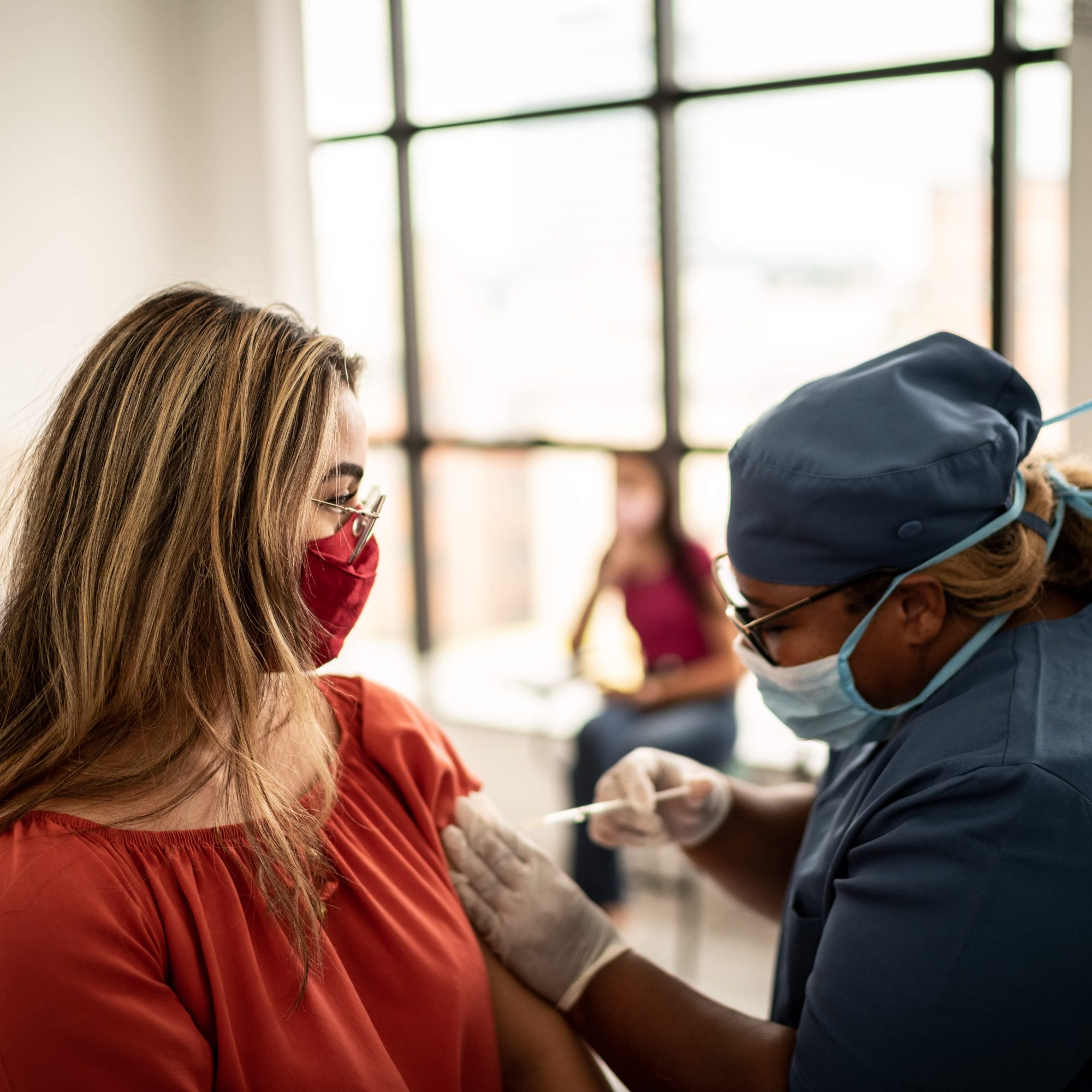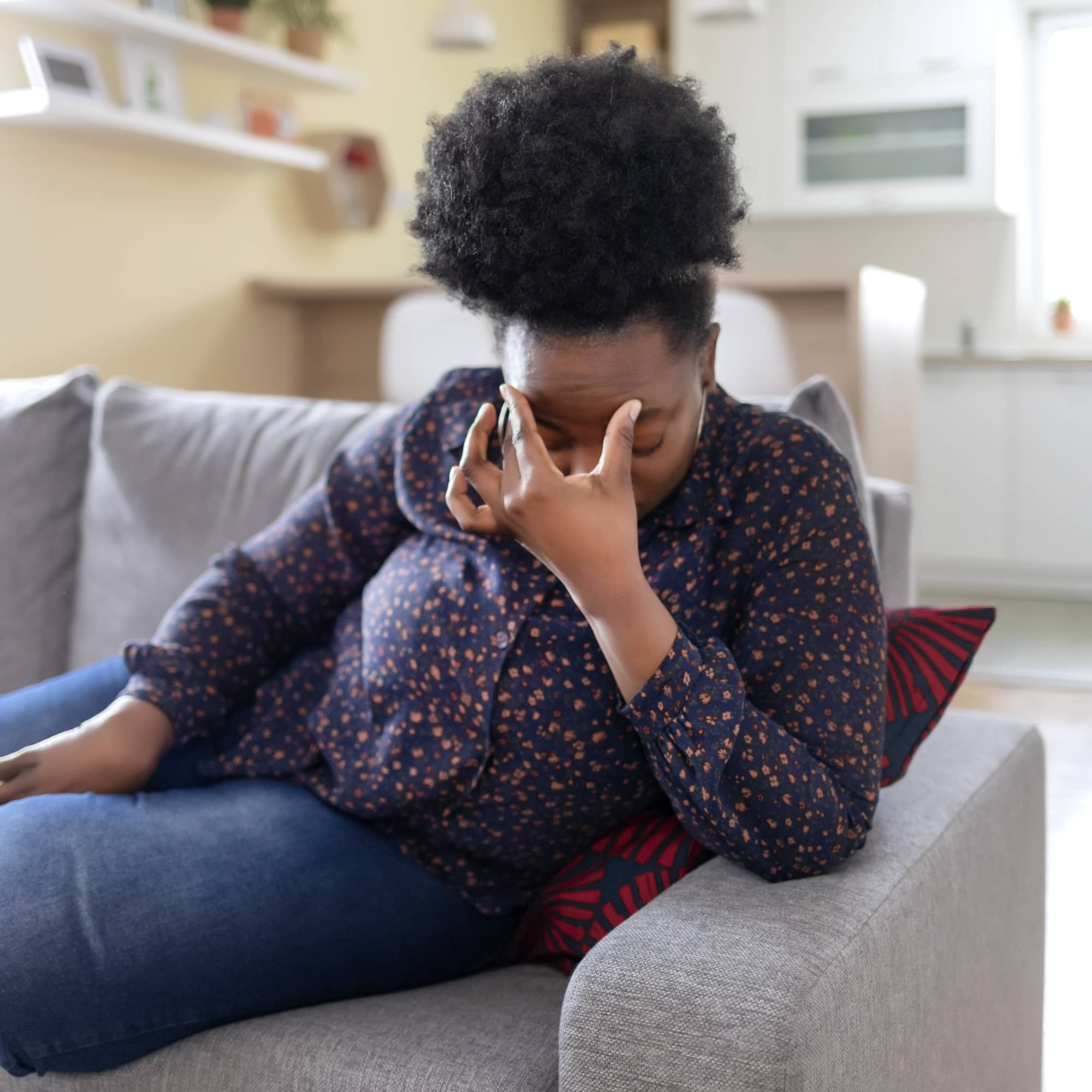
- POPSUGAR Australia
- Fitness
- Anxiety Might Be Causing People to Faint After the COVID-19 Vaccine – Doctors Explain
Anxiety Might Be Causing People to Faint After the COVID-19 Vaccine – Doctors Explain

While some people have an onset of COVID-19 vaccine side effects that begin within a day or so, fainting shortly after receiving the shot is being reported in small numbers. An analysis released by the CDC, for instance, identified 64 “anxiety-related events” postvaccination out of 8,624 doses between April 7 and April 9, 17 of which were fainting or “syncope.” All recipients received the Johnson & Johnson vaccine.
The CDC says it receives reports of fainting “after nearly all vaccines” that is usually triggered by pain or anxiety (fainting postvaccine is reported the most in adolescents). Twenty percent of the patients with anxiety-related events in the CDC analysis had a history of fainting associated with receiving injections or an aversion to needles. Lightheadedness or dizziness were the most common reported symptoms out of the 64 events analyzed in that CDC report, and a few experts POPSUGAR spoke with said fainting, dizziness, or lightheadedness are examples of a nerve response called vasovagal reaction.
Amina Abdeldaim, MD, MPH, the medical director for Picnic and a clinical assistant professor at NYU Grossman School of Medicine, explained that the vagus nerve running through the thorax (in the centre of the body) affects the heart. “There’s a reflex that decreases the heart rate, and that’s what causes your lightheadedness and your dizziness,” she said. There is also a sudden drop in blood pressure, which can decrease the flow of blood to the brain.
Sofija Volertas, MD, an assistant professor in UNC’s division of rheumatology, allergy, and immunology, noted that this response doesn’t always have to be linked to anxiety, per se. “[People] can still have this type of reaction, even if they’re not having significant emotional distress.” One nurse who received the Pfizer COVID-19 vaccine back in December and fainted during an interview post-shot revealed that she has an “overactive vagal response” to pain. You can read about other causes of syncope (fainting) specifically here.
Dr. Volertas also clarified that vasovagal reactions and immediate severe allergic reactions, or anaphylaxis, differ. While both can happen shortly after a vaccine, vasovagal reactions tend to occur within a few seconds to a few minutes after being injected, whereas anaphylaxis, she stated, can only occur once the allergen is absorbed into your system and recognized by your immune system (which is why people are told to wait 15 minutes postvaccine before leaving the vaccination site, or 30 minutes if they have a history of anaphylaxis or, as the CDC notes, any vaccine- or injectable-causing immediate allergic reaction).
“The other thing with vasovagal, is usually your pulse gets really slow, you get really clammy skin, and you get really pale,” Dr. Volertas said. “With allergic reactions, you actually get really flushed, red skin and hives, and your pulse gets really rapid.” A nonsevere immediate allergic reaction can take place up to four hours postvaccine, whereas vasovagal reactions do not.
When someone faints from a vaccine or exhibits other symptoms of a vasovagal reaction, it’s typically short-lived – for the 64 cases reported by the CDC, most were resolved within 15 minutes. It’s what Purvi Parikh, MD, an immunologist and allergist with Allergy & Asthma Network, classified as “a very benign, short, limited” response. “People recover on their own, even within minutes, and they don’t have dangerous changes in their vital signs and whatnot,” she explained.
Bottom line? If you experience fainting when given the COVID-19 vaccine, it shouldn’t be cause for concern, but you can always touch base with your doctor. Additionally, if you experience fainting or other adverse reactions once you’ve left the vaccine site, that is not considered a vasovagal reaction. In that case, contacting a medical professional may be wise, and the same applies to any symptoms lasting for a prolonged period of time.


